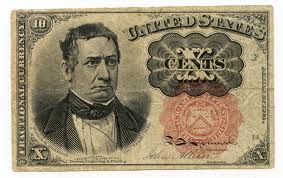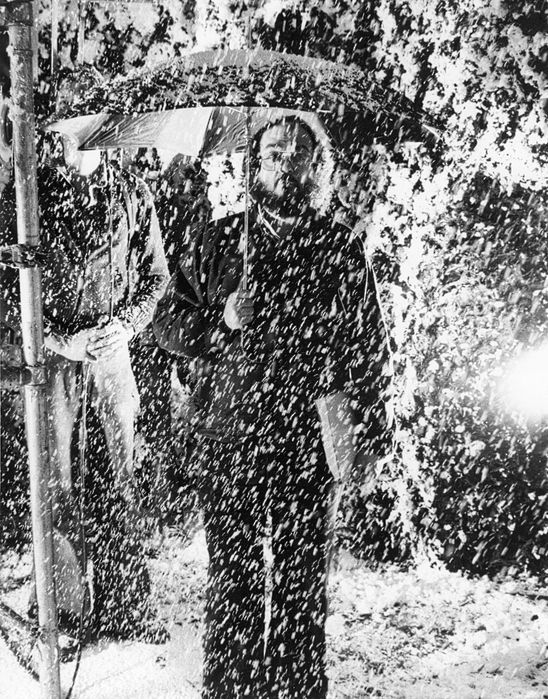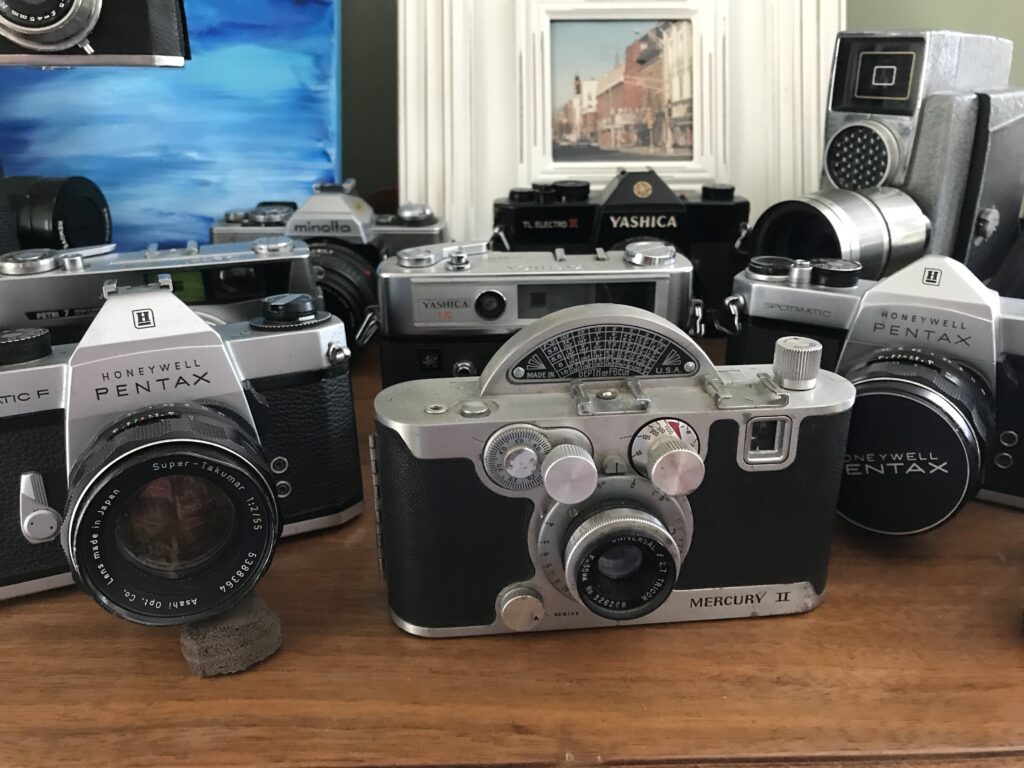THE IRONY OF MONEY: AS TRUST IN U.S. DOLLAR ERODES, THE WORLD IS BEGINNING TO ENVISION THE END OF THE U.S. AS A VIABLE SUPERPOWER … plus … FROM THE WSJ — IT COULD BE WORSE: YOU COULD BE UNDER 40
By DAN VALENTI
PLANET VALENTI News and Commentary
(FORTRESS OF SOLITUDE, THURSDAY, MARCH 21, 2013) — THE PLANET been paid handsomely for NOT writing two times in our career, the first being in our lone Hollywood experience in the late 80s. We had been warned of the mantis-like nature of the town by our dear friend, the late, great novelist Hollis Hodges of Stockbridge, who had two of his books made into movies. Sounds glamorous, and at some level it was, but it was more hassle than not. It’s hard to take seriously a producer who kept a loaded squirt gun in a side holster.
 We had been working for an independent production company on an action-adventure project centered on the Vietnam conflict that would star The Gunny himself, R. Lee Ermey. Abruptly one morning, however, we got a call from the accounting office, telling us to stop work. At that point we had not completed 20% of the work but accounting said we would be paid for the full contracted amount. The next day, we got a check and a ticket back to JFK Airport.
We had been working for an independent production company on an action-adventure project centered on the Vietnam conflict that would star The Gunny himself, R. Lee Ermey. Abruptly one morning, however, we got a call from the accounting office, telling us to stop work. At that point we had not completed 20% of the work but accounting said we would be paid for the full contracted amount. The next day, we got a check and a ticket back to JFK Airport.
Money, Not a Bit of Solace … Well, Some
Nice knowing ya. We resolved never again to be tempted by Tinseltown. The money came as no solace … well, some, to be honest!
One later day, out of curiosity and after the check had cleared, we asked how come we were paid when they knew they weren’t going to making the films. The producer gave me a line straight out of Barton Fink: “Out here, you’re not a writer you’re a write-off.” The company had written off our fee, we later learned through our agent, on its tax filing. Through voodoo accounting, they buried the expense in another of the company’s divisions (a profitable one). Somehow, Sunshine Productions (not the real name) ended up making money on the “loss.”
The second time THE PLANET got paid for not writing came in the early 2000s, when a trade association bought us out of a contract after they had changed not just management but ownership. We had almost a year left, yet they paid us a “kill fee.” We felt like Billy Martin after George Steinbrenner fired him with a year still left on his contract. Billy got paid for playing golf. We got paid to hustle work elsewhere.
Trust in Nothing
 It was at that moment that we perceived the true nature of money, much like George Orwell getting an insight into the vile nature of imperialism when he’s followed by a couple thousand Burmese who literally will him to shoot the elephant (“Shooting an Elephant”).
It was at that moment that we perceived the true nature of money, much like George Orwell getting an insight into the vile nature of imperialism when he’s followed by a couple thousand Burmese who literally will him to shoot the elephant (“Shooting an Elephant”).
We had been paid for nothing. We asked ourselves, “How do you buy nothing? With nothing.” It became a kind of funny Zen koan, and we realized viscerally something we previously understood only as an intellectual abstraction: The U.S. dollar is worthless and because of that, in the minds of the wheeler dealers who use money as a commodity to make money, there’s little difference between, say, a “surplus” and a “debt.” This ugly little fact about money has become the cause of the gigantic systemic problems of not only the U.S. economy but much of the world’s (Greek or Spain, anyone?).
These two companies were playing an Orwellian game of clever accounting, manipulating 3,458 pages of the U.S. Tax Code (twice as long as The Bible) to make losses into gains.
The U.S. dollar is a fiat currency. It has value only because (a) someone or something (in this case, the U.S. government) says it’s worth “X” and (b) others believe this. Without that trust, the world’s economic system collapses. As an accountant explained to me, because the dollar is an inherently worthless piece of paper, it becomes easy for “players” to manipulate the laws that govern accounting, finances, and economics. “Assets” and “losses” don’t have to ultimately be reconciled with true worth, as was the case when the U.S. operated on the gold standard in the years prior to 1971, because the actual worth is nothing.
“e” Currency: The Virtual Shape of Things to Come
After America quit the gold standard, the gates opened for every clever and unscrupulous person and company to manipulate currency to do anything they wanted. It’s not a coincidence, for example, that the frenzy of corporate takeovers in the 1970s began shortly after America quit the gold standard. The 80s followed with “Greed is Good,” the 90s with the tech bubble, and the 2000s with the derivative frenzy that led to the collapse of 2008.
There’s a strong case to be made for returning American’s currency into a metallic-based money. THE PLANET shall leave that for another column, except to say that the case for metal-backed money will become irrefutable after the dollar collapses.
It’s easy to see where this all ends: With the end of money as we know it to be replaced by electronic “currency.” The change is well on the way, as we see every time someone pays for gasoline or groceries by swiping a credit card. On a larger scale, the transformation has enabled the trading in commodities and currency via computers, which each night flips about $3 trillion worth of “stuff” electronically all over the globe. All this is being done in microseconds, 24/7, in enormous quantities (such a bundled mortgages or pouncing on the difference of 1/10th of a cent from one minute to the next between two different currencies). It’s rather like the difference that technology has made in warfare. It’s one thing to look a man in the eye and pull a trigger or plunge a dagger. It’s another to sit at a computer console and launch a drone missile that will kill 48 civilians 8,000 miles away. The first is messy and gut wrenching. The second is clean, antiseptic, and done while sipping Starbucks mocha-chino.
This type of behavior allows people to forget what they are doing with money (or with killing), and it easily leads to massive debt, default, manipulation, and malfeasance. Human nature is simply not strong enough to resist the temptations offered by this game of computers and fiat electronic money.
Where’s the Money? Where’s the Trust?
Dollar debasement — the printing or more and more worthless money — has begun to erode the world’s trust in the dollar as the globe’s basic unit of currency. When Lehman Brothers imploded in 2008, the U.S. as well as the global financial system entered a new reality, like a reverse Wizard of Oz: The screen goes from Technicolor to black and white.
In point of fact, the U.S. dollar is no longer a trustworthy economic unit. The world’s trust in the dollar recedes daily, and no amount of printing of greenbacks by the Feds will stem that erosion. The Chinese yuan, the primary unit of the renminbi (China’s official currency), will likely knock off the dollar by 2020, winning the economic game of King of the Hill. What’s backing the renminbi, you ask? Does it matter? So-called civilized, technological society will have to trust in something (it won’t be God).
The Irony of Money
 The irony of money lies in the fact that operates on a trust that has been misplaced. The U.S. claims that its dollars are worth something, but that is a lie. There is no precious commodity in a vault to back the countless dollars America churns out on its printing presses, using paper made just up the road in Dalton by Crane and Co. If anyone else does the same thing, they get hauled off for counterfeiting. When the government does it, they call it the actions of the Federal Reserve.
The irony of money lies in the fact that operates on a trust that has been misplaced. The U.S. claims that its dollars are worth something, but that is a lie. There is no precious commodity in a vault to back the countless dollars America churns out on its printing presses, using paper made just up the road in Dalton by Crane and Co. If anyone else does the same thing, they get hauled off for counterfeiting. When the government does it, they call it the actions of the Federal Reserve.
If, in this odd economic climate of 1%-99%, anyone has managed to save money for the future, they are doing better than most. The numbers suggest that the younger you are, the more precarious your financial future. The Baby Boomers, THE PLANET’s generation, makes out OK, but those born after 1964 look to be in for a rough ride.
Here’s a story first printed in the Wall Street Journal that addresses this huge problem. The implications of this problem dwarfs most other concerns, and they are more of a national security threat than Al Qaeda, Al Jazeera, and Al Lopez combined.
—————————–
It could be worse: You could be under 40
By Matthew Heimer
The Great Recession and its aftermath have been a financial nightmare for millions of us, and there’s no question that the economic debacle has put many baby boomers’ retirements in jeopardy. But while you may be having a tough time, chances are your adult kids and your younger neighbors are looking at a much rougher road than you are. A new report published today by the Urban Institute shows just how badly people who belong to generations X and Y – basically, anybody born after 1964 – has been set back by the economic trends of the last decade-plus. And it also shows how the financial advantages of being older have insulated baby boomers, as a group, from some of the worst effects of the economic slowdown.

- Shutterstock.com
- Gen X and Gen Y may not be able to afford this.
The study, entitled “Lost Generations? Wealth Building among Young Americans,” uses data from the Federal Reserve’s Survey of Consumer Finances to study the net worth (assets minus debts) of households between 1983 and 2010. The researchers compared age groups over time, using inflation-adjusted dollars – for example, comparing people who were between 56 and 64 years old in 2010 to people who were in that same age range in 1983, and so on.
Every age group except those 74 and over was doing worse in 2010 than its counterparts were in 2007, before the market and housing crashes – no big surprise there. But the 2010-to-1983 comparison is far more dramatic. Average household wealth roughly doubled over that period, according to the study’s authors. People aged 47 to 55 (younger boomers, essentially) were 76% wealthier on average than their precursors; those aged 56-64 (older boomers) were 120% wealthier. But people aged 38 to 46 were only 26% wealthier, and those aged 29 to 37 were 21% lesswealthy.
Part of the older generation’s advantage is a matter of timing, as the study’s authors go on to explain. Older homeowners who’d bought their property well before the housing bubble, for example, were less likely to lose some or all of their equity when their houses lost value. Just as important, middle-aged investors who’d had time to build up a substantial retirement nest egg – and were able to avoid the temptation to bail out of the markets at their worst – had more assets on hand to benefit from the rebound that started in 2009. And people who’d already retired were more likely to be relying on annuities, Social Security and other income streams whose value wasn’t affected (or wasn’t affected much) by the crash.
Of course, there are other factors hampering younger adults. The unemployment rate has been higher for 25-to-34 year olds than for boomers for most of the last five years. Student debt, meanwhile, has become a huge obstacle to their efforts to save for the future: As MarketWatch has reported, over the past two decades the average college tuition has risen 20 times as fast as the average college grad’s wages. And those trends are intimately connected to the phenomenon of “boomerang” kids — college-grads, working or not, who can’t afford to live outside their parents’ homes.
Gene Steuerle, the study’s lead author, argues in an entry on his blog today that younger Americans have received less help than their elders in getting established financially (less government support for education, less likelihood of a work-based pension) while being left with bigger burdens, in the form of growing public and private debt. Maybe, he concludes, “it’s time to think about investing in the young.”















ZZZZ……
Yeah, “In the don’t know,” but you tuned in, didn’t you. Face it, Dan’s got you hooked. As for me, I enjoyed this piece, since dollars are everyone’s life blood. I enjoyed the way DV explained this so I could follow since money and how it operates its a mystery to me.
I won’t pretend to know much about how the economy actually works, which I think could have baffled Einstein on a good day, but a segment on 60-Minutes recently showed vividly the literal house of cards that the Chinese economy is built on. They visited large brand spanking new cities built of giant glass and metal buildings with large shopping centers and luxurious condos and homes, gleaming four lane streets to allow for the mass of people living and working in these beautiful places. The only thing is… they are all empty. Not one condo is occupied, not one shopping center has a real business in it (the storefronts had fake signs for companies like Apple and Aeropostale but those companies have made no commitment to being there, or even knew they had their logos absconded by the Chinese entrepreneurs).
There several of these cities in China, and all are empty, never having been lived in by anyone. The contractors who built them have largely been unpaid for over a year and it’s doubtful they will see a dime. The thousands of workers who put their labor into building them were also unpaid and told a year ago that the construction was “on hold for a few months.”
In other words, China is headed for a massive housing bubble that may even eclipse the 2008 US and European collapse. When that bubble pops, we’re all in trouble.
If you Google “China’s ghost cities” you can get a nice look at them. It’s incredible, and quite frightening that the nation that now holds almost all of our debt is standing on ice thinner than what covers Pontoosuc Lake in December.
Off topix. Does anyone know what’s going on with Stockbridge school employee who has been charged with child molestation? I bet if this happened in Pittsfield we would being reading about it every day on The Planet. Just saying….
ITK
The former guidance counselor at the Stockbridge Plain School, Scott Muir, is scheduled to go to trial in September of this year. There’s a final pre-trial hearing set for August in Berkshire Superior Court. Muir is free on bail and has pleaded not guilty.
Thank you.
Topix is nothing but a bunch of idiots with no life who run their mouths about people anonymously because they live such a sad existence that it gives them a false feeling of happiness and accomplishment. But in reality they are just losers with no life. In fact I have been checking in there just to see what those clowns are saying and Dan has been the subject matter lately with slanderous posts aimed to discredit him. I have personally been slandered and have had my identity used on there by some dirt bag which i will never know but if I ever find out well let’s just hope I don’t. So the point is don’t believe anything you read on there.
Yeah! That story is a true tradegy- any time some in a school, church, day care, etc who abuses the welfare of children for their own reasons is a the lowest of the the low in my book.
How could anyone manipulate a child to satisfy there own needs. Wheather those needs be – sexual, political, financial or otherwise, only a true deviant could live with themselves for doing so.
Kids for the most part are voiceless and depend on the ethical judgement of adults. It should always be about the children and not the selfish desires of an adult who may use children as an excuse for their needs.
Dan I forot to add this to my statement about the RVM the other day. The pens that are there to use to complete forms have a plastic spoon taped to them. The spoon portion has R or RMV written in pen on it. This makes it difficult to write with.
Is this state or is it the local office so cheap that they cannot afford to lose a few pens?
Not good PR for the RMV.
Hey Dan,
All money is fiat money even gold. What we all agree is that we need a unit of exchange that tells us what values are. Its not really a dollar that is valuable but what it can be exchanged for. I suggest a terrific, very quick, and nontechnical introduction in economics (more macro than micro) is Greg Ip’s Little Book of Economics. In case you don’t know him, Greg writes for The Economist magazine and was previously at the Wall Street Journal. He now has a new edition of his book, together with an online guide to suggested readings.
CHARLES
Good point. We say gold is valuable and has intrinsic worth, but only because it is shiny, malleable, and relatively scarce. Reminds me of “The Twilight Zone” episode where three guys rob a vault of gold bars, go into suspended animation for 100 years to escape prosecution, and find out, when they wake up (and before they kill each other with greed) that gold has become worthless. I shall check out the book you recommend.
Excellent piece Dan, it’s not so much if wheels come off the economy as when. You can not come into office with a $9 trillion debt run it up to $17 , borrow 1 trillion a year and print another 1 trillion, have a shortfall of $850 billion and expect to not cut spending. I’m not laying blame on 44 or W, but the wheels are coming off for sure.
They are coming off and no one knows how to fix a tire.
RON
Yes, eventually there will be reckoning. Blame is irrelevant, since both 44 and W and predecessors, as well as everyone who has run up irresponsible debt, is to blame.
I don’t understand, people were not happy with W. He got us started down the road of debt. Along comes “hope and change” and he spends like a drunken sailor on leave. I wish I could spend my way out of debt. Although I can’t walk on water either.
My only issue with money is what is the difference between what we have now and a gold standard? Either way you can’t eat gold so in my mind it holds the same value. Do we really need money to keep going ’round? It may actually be a good thing. Let’s get back to nature! It boggles my mind that with all the advancements made over the last hundred years we can’t figure out how to live with out exchange or currency. Maybe the collapse will be a blessing in disguise. We’re living a lie. Think about it the next time you buy a bottle of water…
Kickabuck!
Gotta love it.
Dan, lots of fine points in your article today.
At least on a gold standard, the money had some backing. You could take a silver certificate dollar and go into a bank and they would give one silver dollar for it. Try that today. See what the bank teller tells you.
The constitution of the United States states very clearly states that congress (not the federal reserve bank) shall have the power to “coin” money and “regulate the value thereof”. This coin is in gold and sliver. (real money).
Paper money is ok as long as it can be converted back to gold or silver. This has been done away with and as you point out in your article today, the money is fiat and backed by nothing but the confidence of the American people and people of other countries.
The Federal Reserve bank is no more “Federal” than Federal Express that delivers your packages. It is a private bank that lends money to the federal govt at interest. Bonds are issued and then sold. Totally unconstitutional. Gold and silver are real money and have always been real money.
That twilight zone episode depicts that man would find a way to manufacture gold and thus render it worthless. Such is not the case although alchemy has been tried for centuries. At this time, 3/21/2013, gold does indeed have intrinsic value. Very much so. Russia, China, India, Iran, pre-invasion Iraq and Libya have been acquiring it by the boatload. As well as many other countries.
In fact Iran now sells their oil in gold and not US “petrol-dollars”. Possibly the real reason they are slated to be invaded next. The confidence of other countries in the petrol-dollar is waning.
If you buy futures contracts in commodities such as gold and silver and the economy collapses – guess what your paper contracts will be worth? If you have fist full of $100.00 bills and the value of the dollar goes to zero guess how much those bills will buy?
On the other hand, if you have a silver quarter from say 1964 and you go to a farmer and seek to purchase a dozen eggs – guess what? Yes you can eat.
In 1963 you could buy a gallon of gas for a quarter. Today, take that same quarter today and go into a coin shop. The dealer will give you $5.00 for it. (approx) Do you think you can buy a gallon of gas right now with $5.00? Precious metal holds its value.
Gold and Silver are not fiat. They have intrinsic value. Always have and always will (my belief).
In 1913 (the year the Fed came into existence), if you had $1,000 in currency and kept it in a shoebox until today, you would still have $1,000.
In 1913 if you had $1,000 in gold and kept it in a shoebox until today, you would have $80,000.
Here is a chart making it crystal clear what the Federal Reserve Bank has done:
http://4.bp.blogspot.com/_MGqQsG6z8IQ/TDneW6_1JBI/AAAAAAAAABc/fwkJrcp3GRI/s400/1%5B1%5D.jpg
You can see very clearly there that the ponzi scheme of the dollar is headed for its true value — zero.
FPR
Excellent post, well reasoned and full of information.
Thank you very much but I still question why the farmer would even want the coin for eggs as opposed to having you earn it by working for him. At the end of the day why does the metal keep it’s value also only because we say it does.
Scott
Yes true, all things being equal if the farmer had only a dozen eggs and you were the only one who wanted them — yes he could have you do some chores I suppose.
However, the coin is just a “medium of exchange”. What true money is. He can then take the coin and exchange it for some gas for his tractor or socks or whatever he needs. Then the quarter could pass onto to something the gas station owner needs.
Sure the farmer can you give some eggs for your labor but maybe not other things you need. Coins can accomplish far more than your farm labor can.
FPR,
The Federal Reserve is not unconstitutional. The Supreme Court approved federal banks long ago in a case called McCullough v. Maryland.
Returning to the gold standard is folly. Gold is a commodity, and is therefore subject to fluctuations in price like other commodities. And, inflation is near zero right now.
The main problem is entitlement spending on Medicare, Social Security, Medicaid, and defense system. These programs constitute the bulk of our federal system and demand systemic change. Please don’t let silly conspiracy theories distract you from what are the obvious drivers of federal spending.
A private central bank issuing currency to the Federal Government is very much unconstitutional.
The constitution is no conspiracy theory. The constitution is very very clear on what money. It clearly states that money shall be “coined” in Gold and Silver. “Congress” shall regulate the value thereof. Not Ben Bernanke.
FPR,
I recommend you read the McCullough decision.
Are you saying the McCullough decision nullifies the constitution?
As far as I know the supreme court can only interpret and clarify the constitution – not amend or change it.
That would take a constitutional convention.
You say:
“Returning to the gold standard is folly. Gold is a commodity, and is therefore subject to fluctuations in price like other commodities”.
Did you know that in 1971 when Richard M. Nixon took the United States off the gold standard it was supposed to be a “temporary” measure? He did not do it because of fluctuations in commodities.
We’re still waiting for that temporary measure to be lifted. If the United States were to go back on a gold standard do you have any idea what an ounce of gold would be worth?
If gold were to back every single dollar that has been issued, gold would be worth roughly $60,000 per ounce.
Were the founding fathers considered “folly” for instituting a gold standard? When they penned “Congress shall regulate the value thereof” — do you think Congress could control “fluctuations” as they have the power to regulate the value thereof?
A private bank issuing currency backed by nothing is superior to a gold standard that would force this country to live within its means? I think not.
When you can name another nation that currently uses the gold standard, let me know.
The Supreme Court interprets the constitution, FPR. The Federal Reserve is perfectly constitutional.
Gold is not money. You’re mixing apples and oranges. And, you’re ignorant of history. Congress suspended the Gold Standard in 1933 with the Gold Reserve Act.
It is you my friend that ignores history. You would have to be blind or never to have read the constitution to not see how clear it is stated there what money is.
President Andrew Jackson spent his entire presidency opposing the formation of a central bank such as the federal reserve.
True, there is no other nation is on a gold standard at present — they are all fiat. Which also means they are all doomed to fail. Thank your lucky stars you are not in a Euro zone right now.
Every single fiat currency in history has failed. Take your US gold certificate to any bank in the USA and tell them you want the gold, see what happens. Take your 100,000.00 Wiemar Republic note to a store in Germany and see what it will buy. Take your half of a Great Britain tally stick to a bank in England and see if it tallies up. Take a 100 Trillion Zimbabwe note to that country and see what it buys.
The same will happen to the Euro and US dollar. Its only a matter of time. Its not real money.
You ignore what money was pre-1971.
FPR,
The Civil War summarily ended Jackson’s states’ rights lunacy.
And, no economist backs a return to the gold standard. The notion that prices are always stable under the gold standard is a myth. Here are some charts that lay the facts bare:
http://www.theatlantic.com/business/archive/2012/08/why-the-gold-standard-is-the-worlds-worst-economic-idea-in-2-charts/261552/
DV-
Been gone for awhile, national and state issues have been my point of interest for many months. Now I check in with you and see a great article on the reality of the nations future if current policies continue. It has been 100 years since this nation had its own currency. We have given the power of the US to international bankers. The dollar is a piece of worthless paper as it has been since we sold our souls to private interests in 1913. You have some balls to call it the way it is. We are broke and owned by those who control metals and oil. Our current controllers are still playing the tired song of doom, blaming capitalism and ‘fossil’ fuels. The Chinese are spreading their currency. The Russians and Iranian governments are backing the Yuan as the new global currency for purchasing oil.
I recall some other poster on this blog giving me shit for saying that I invest in AU, AG and also buy guns, where is that short sighted punk now? Bet he/she is looking at the bubble stock market thinking that he/she is really smart. Its all gonna fall apart. We as a nation have used our power for so long that we believe we are invincible, sadly, America is just another super power has been. The next 10-30 years are gonna get nasty. Really sad people are just starting to see this.
JS
Welcome back to THE PLANET!
We are all pawns on a corporate elite chess board. We fight wars for our economic interests. The top 1% benefit, while tens of millions of American people live in poverty. Globally, 4 billion people live in poverty. The “system” needs to change!
After attending the Olympics in China I learned a valuable lesson….the housing we stayed in that was built by the Chinese
was not anywhere close to the standard of basic housing in America…while the living room, kitchen and bedrooms were very modern and beautiful the plumbing in the bathrooms shared the same vents as those in the kitchen…which meant that the odor of human waste was shared by all rooms in the apartment…I guess the plumbing inspector, if one even existed, must have been out of work that day. Everything looked good and modern…but it all smelled very primitive.
Way, way off topic.
Get ready for a very interesting story that is currently developing and will soon be released re: a south county PD.
Most people who are familiar with this situation are saying less then nothing about what they either know, think they know, or wish they knew.
It’s a story that has been in “production/development” for over fifteen years.
Can anything be kept under wraps forever?
Yes and maybe no.
SEAN
Can you be more specific? If necessary, send me a private e-mail.
All good stuff guys you all are a wealth of information. I just feel we need to get back to things that are important and that is family and raising our youth up with a solid foundation. I agree the out of control debt, spending and printing of money by the “federal” reserve is not working towards that goal. Democrat and republicans alike use tactics through the media to fool you and get you thinking about other things like what the stars wore at the Oscars. Start a garden get outside and spend a few hours in nature. It’s time to get reacquainted with what is truly important and necessary if we want to not only sustain but continue existing. My lead, brass, primers and powder along with organic seeds and portable water filtration system hold more value than any currency in my opinion.
Yes Scott, lets not ignore the really important things in life. Agreed. Good comment.
It is interesting to note that the Federal Reserve Act was passed by a lame-duck Congress. NAFTA was also. Make your own analogies. All I can say with certainty is that the Fed will eventually be presiding over the biggest Chapter 7 in world history. BTW, the Federal Reserve is neither federal nor a reserve.
Ben